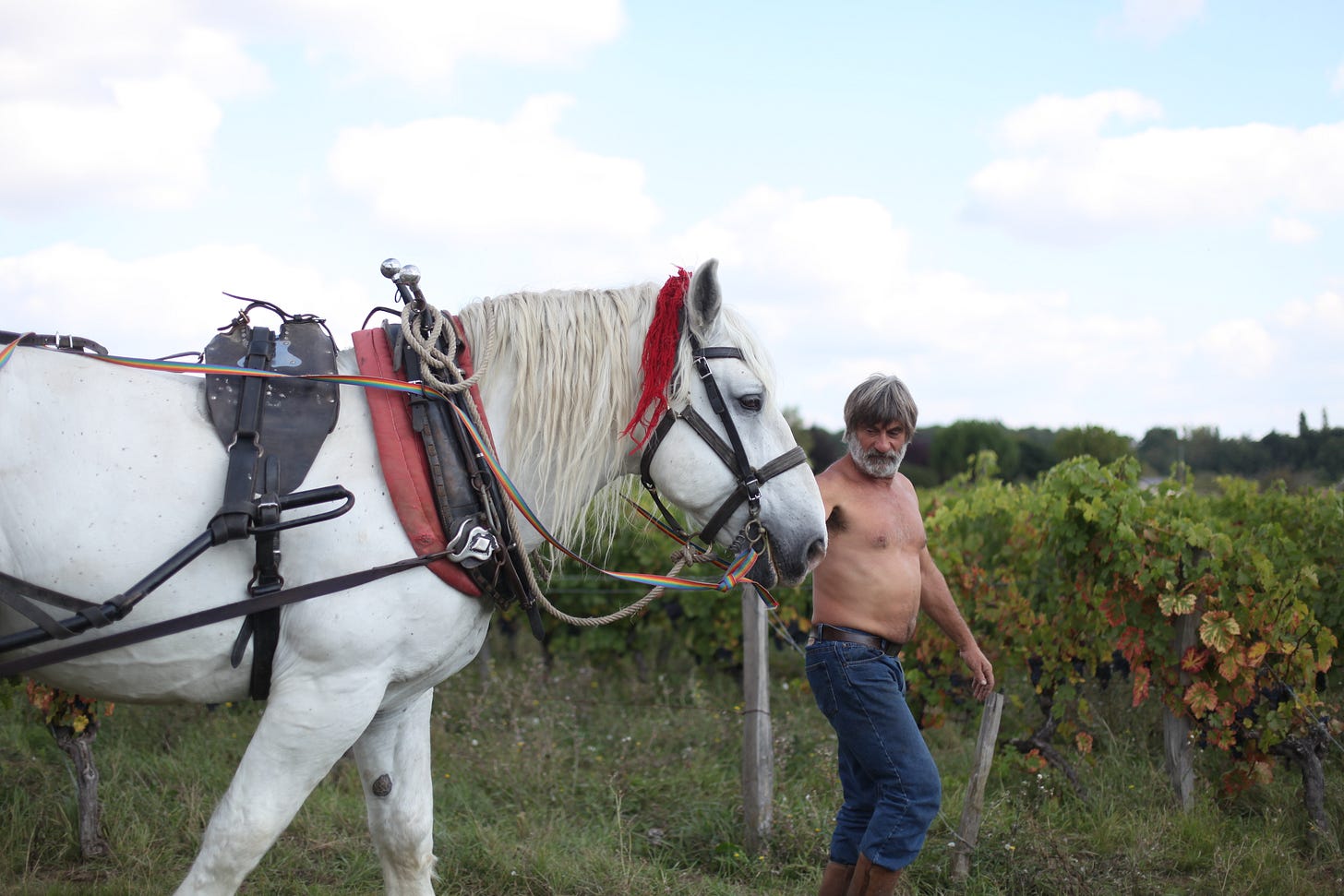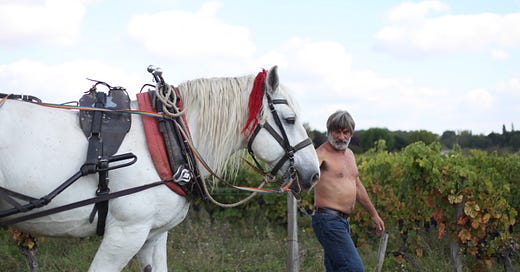Two harvests in the Loire: François Blanchard and Olivier Cousin

I don’t know if personality can change a wine, but it can change the feel of a harvest. In September I worked on two vendange teams: two days with François Blanchard and five for Baptiste and Olivier Cousin. And though both work with horses, the experiences could not have been more different.
First, François Blanchard. François lives in 3/4 of a château in Lémére, Touraine, while the other 1/4 is full of rooms full of mattresses, dodgy-to-no electricity and bidets in unlikely places. He is a short man with long, Pocahontas hair and is full of Jazz, capital J. When we pulled in four hours later than we said we would, we were greeted with howls, his skin-macerated Sauvignon and a fairly famous accordion player who looked like Hemingway and who used to make illustrations on acid. Long into the morning there was throat singing, a great deal of dissonance and a little philosophy flying around. Then we dragged ourselves to bed.
The objective of the next day, which started at 11, was to pick s…
Keep reading with a 7-day free trial
Subscribe to The Morning Claret to keep reading this post and get 7 days of free access to the full post archives.




